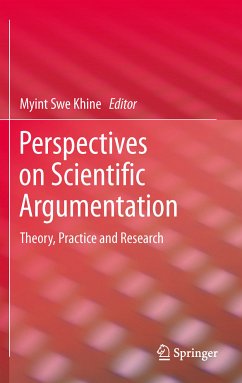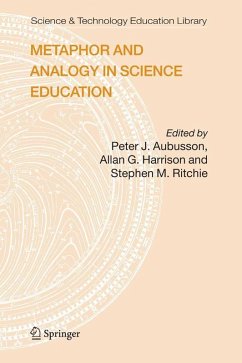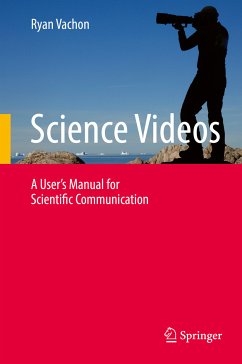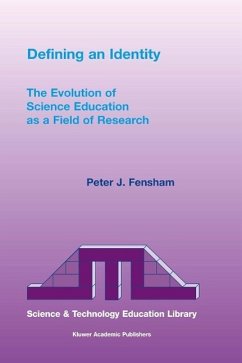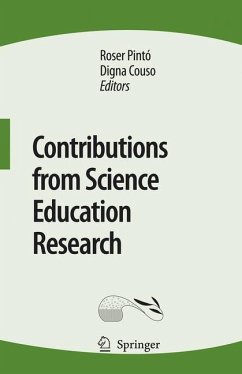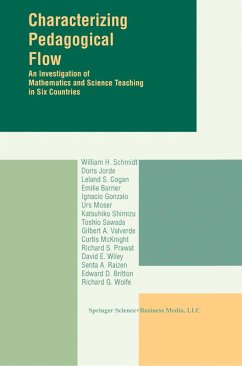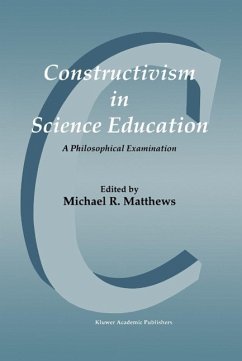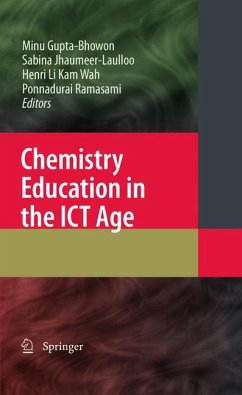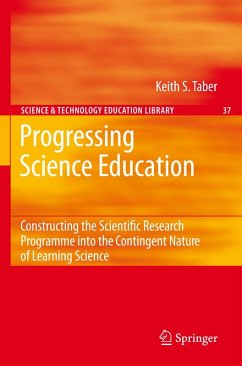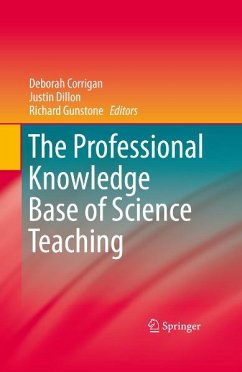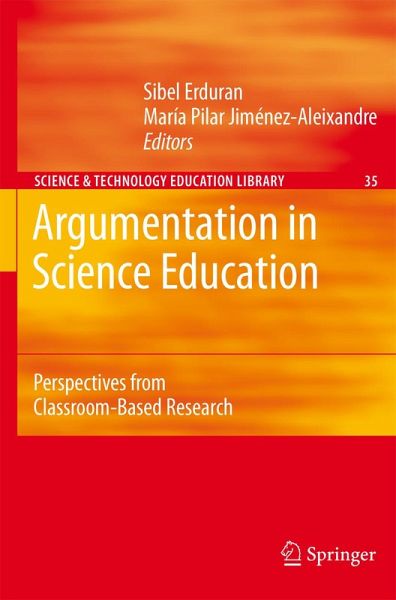
Argumentation in Science Education (eBook, PDF)
Perspectives from Classroom-Based Research
Versandkostenfrei!
Sofort per Download lieferbar
160,95 €
inkl. MwSt.
Weitere Ausgaben:

PAYBACK Punkte
80 °P sammeln!
This book brings together the work of leading experts in argumentation in science education. It presents research combining theoretical and empirical perspectives relevant for secondary science classrooms. Since the 1990s, argumentation studies have increased at a rapid pace, from stray papers to a wealth of research exploring ever more sophisticated issues.This volume constitutes a unique collection and covers fundamental issues in argumentation such as cognitive, methodological and epistemological aspects; classroom-based research in teaching and learning of argumentation in science classroo...
This book brings together the work of leading experts in argumentation in science education. It presents research combining theoretical and empirical perspectives relevant for secondary science classrooms. Since the 1990s, argumentation studies have increased at a rapid pace, from stray papers to a wealth of research exploring ever more sophisticated issues.
This volume constitutes a unique collection and covers fundamental issues in argumentation such as cognitive, methodological and epistemological aspects; classroom-based research in teaching and learning of argumentation in science classrooms; and argumentation in context such as in socio-scientific and moral contexts. The book's underlying premise is that argumentation is a significant aspect of scientific inquiry and plays an important role in teaching and learning of science. Argumentation also contributes to the agenda of informed citizenship where students are encouraged and supported in evidence-based reasoning in their everyday lives.
"Arumentation appeared as a major theme in science education research during the mid-1990s. Since that time, researchers working on themes such as the nature of science in science education, science education for citizenship, and language in the science classroom have all addressed argumentation in their work. This book brings together key lines of work and key scholars, presenting a state-of-the-art review of argumentation in science education."
Professor John Leach The University of Leeds, UK
This volume constitutes a unique collection and covers fundamental issues in argumentation such as cognitive, methodological and epistemological aspects; classroom-based research in teaching and learning of argumentation in science classrooms; and argumentation in context such as in socio-scientific and moral contexts. The book's underlying premise is that argumentation is a significant aspect of scientific inquiry and plays an important role in teaching and learning of science. Argumentation also contributes to the agenda of informed citizenship where students are encouraged and supported in evidence-based reasoning in their everyday lives.
"Arumentation appeared as a major theme in science education research during the mid-1990s. Since that time, researchers working on themes such as the nature of science in science education, science education for citizenship, and language in the science classroom have all addressed argumentation in their work. This book brings together key lines of work and key scholars, presenting a state-of-the-art review of argumentation in science education."
Professor John Leach The University of Leeds, UK
Dieser Download kann aus rechtlichen Gründen nur mit Rechnungsadresse in A, B, BG, CY, CZ, D, DK, EW, E, FIN, F, GR, HR, H, IRL, I, LT, L, LR, M, NL, PL, P, R, S, SLO, SK ausgeliefert werden.



